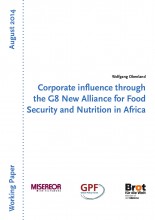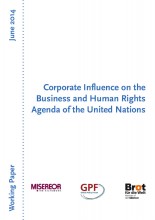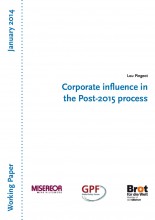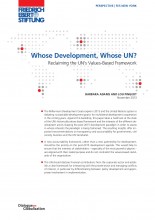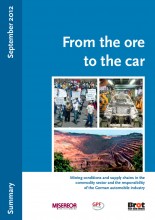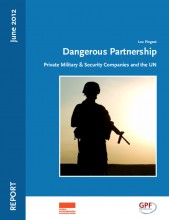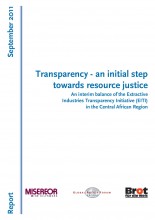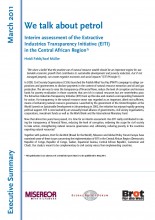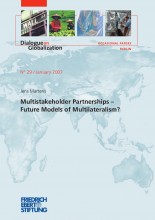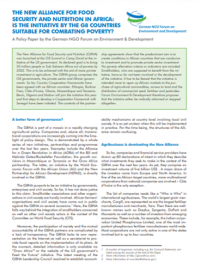
Latest on Corporate Influence and Accountability (GPF) - Archive

A new policy paper published by the German NGO Forum on Environment and Development argues that the G8 New Alliance for Food Security and Nutrition in Africa will not be able to combat hunger and food insecurity in Africa. On the contrary, the paper, to which Global Policy Forum contributed, points out that the New Alliance is mainly focused on providing multinationals with opportunities to reap profits through the creation of environments conducive to investment. Thus, the paper calls for [...]
In a recently released short documentary, Brazilian initiative Justiça nos Trilhos (JnT) explains about social and environmental conflicts in iron ore extraction in the Amazon region of Carajás, northern Brazil—and the connections with the German car industry. Again and again, mining and processing of natural resources has involved violations of human rights and an escalating of violence and conflicts. Largely, this problem has lately received public attention as far as diamonds, coltan and other “conflict commodities” are concerned. However, the [...]
In numerous countries, the exploitation of mineral and fossil natural resources is resulting in violations of human rights, rising poverty and violence. Many partner organisations of “Brot für die Welt” and MISEREOR are campaigning for the people affected. They are urging that those concerned actually benefit from the exploitation of natural resources in their countries, that they can realise their human rights, that the environment is not destroyed, and, above all, that they are comprehensively informed about plans, projects and [...]
“We share a belief that the prudent use of natural resource wealth should be an important engine for sustainable economic growth that contributes to sustainable development and poverty reduction, but if not nmanaged properly, can create negative economic and social impacts”(EITI Principle 1)
In 2000, Civil Society Organisations (CSOs) launched the Publish What You Pay (PWYP) campaign to oblige corporations and governments to disclose payments in the context of natural resource extraction and oil and gas production. The aim [...]
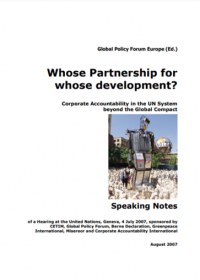
One day before UN Secretary General Ban Ki-Moon chaired the second "Global Compact Leaders Summit" in Geneva, a group of NGOs sponsored a hearing to assess the UN corporate initiative. Speakers addressed the failure of the Global Compact to hold its signatories accountable for basic human rights, as well as environmental and labor standards. The speakers also discussed how many translational corporations exploit their Global Compact memberships to advance their public relations, and oppose initiatives calling for binding international regulation [...]

